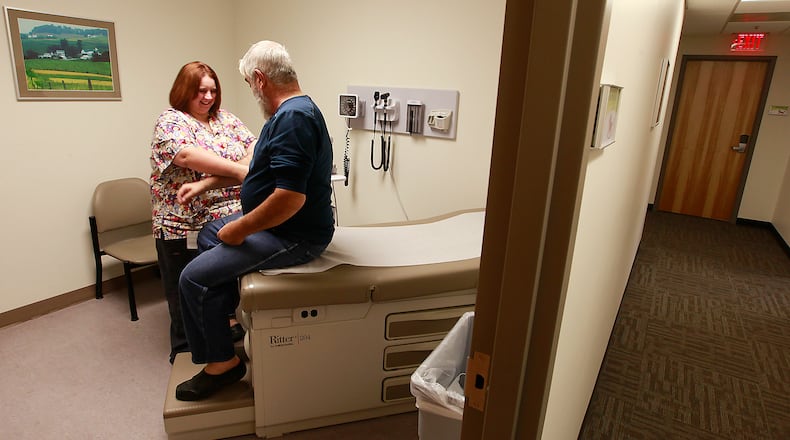At the start of the pandemic, the Families First Coronavirus Response Act included a temporary requirement for Medicaid programs to keep people continuously enrolled and, in exchange, states received enhanced federal funding. This resulted in an additional $5.1 billion in federal Medicaid matching funds for Ohio.
“Our goals are to ensure that Medicaid eligible Ohioans will have the tools they need to maintain their health care coverage and not risk a gap in service, and that Ohioans no longer eligible for Medicaid can smoothly transition to other affordable health care options,” Maureen Corcoran, director of Ohio Medicaid, said in a news release.
Ohio resumed routine eligibility operations Feb. 1 with the first round of termination letters being mailed to those who are no longer eligible beginning this month. Health coverage for those individuals will end April 30 at the earliest. Federal guidelines provide states up to 12 months to initiate and 14 months to complete eligibility renewals, so not all terminations will take place now.
“People won’t lose coverage overnight if they are no longer eligible,” said Reba Chenoweth, public information officer for human services at the Montgomery County Job Center. “They will not be disenrolled until after they’ve had a full eligibility redetermination. A client’s renewal month aligns with the date they were first approved for coverage.”
Local health centers have been working with their patients to make sure they go through the necessary steps to renew their Medicaid coverage.
“We have sent out letters to those we have been notified who are in danger of falling off (Medicaid coverage),” said Gregory Hopkins, executive director of the Community Health Centers of Greater Dayton. Managed care providers like Buckeye and CareSource have helped the health centers identify which patients may be at risk of losing coverage.
More than 60% of patients with the Community Health Centers of Greater Dayton have some type of Medicaid plan, Hopkins said.
If patients lose their Medicaid coverage, federally qualified health centers such as the Community Health Centers of Greater Dayton will still treat those patients regardless of their ability to pay. It may impact the health centers’ operations, though, by causing a drop in revenue.
“It definitely has a revenue impact on our organization,” Hopkins said. “True to our mission, we provide care to patients regardless of their ability to pay, but it’s a lot less revenue when they’re uninsured.”
Lack of health coverage may also prompt individuals to avoid seeking care.
“When people are uninsured, they’re less likely to seek care and get the preventative care they need,” Hopkins said.
Individuals covered by Medicaid should make sure they are opening letters from their managed care providers to make sure they do not miss any disenrollment notices.
As of March 2023, Montgomery County had approximately 192,000 enrollments for Medicaid, which is about 36% of the county, according to Ohio Medicaid. Within the local region, over 490,000 individuals were enrolled in a Medicaid program last month. It’s not clear how many of those enrollees are at risk of losing their health coverage this month as the first numbers will not be available until after April’s eligibility redeterminations are complete.
Of the 3.5 million Ohioans with some type of Medicaid coverage, more than 3.2 million of them are on a Medicaid managed care plan.
Information for Medicaid members
The Ohio Department of Medicaid encourages enrollees to keep their contact information up to date, including their mailing addresses so they receive notices to renew coverage.
You can update your contact information by calling (844) 640-6446 between 8 a.m.-4 p.m. Monday through Friday as well as by visiting your county department of Job and Family Services or going online through the Ohio Benefits Self-Service Portal at https://ssp.benefits.ohio.gov.
If you lose coverage and need help understanding your options, navigators are available through Get Covered Ohio for free assistance. Go to getcoveredohio.org or call (833) 628-4467 for more information.
About the Author


